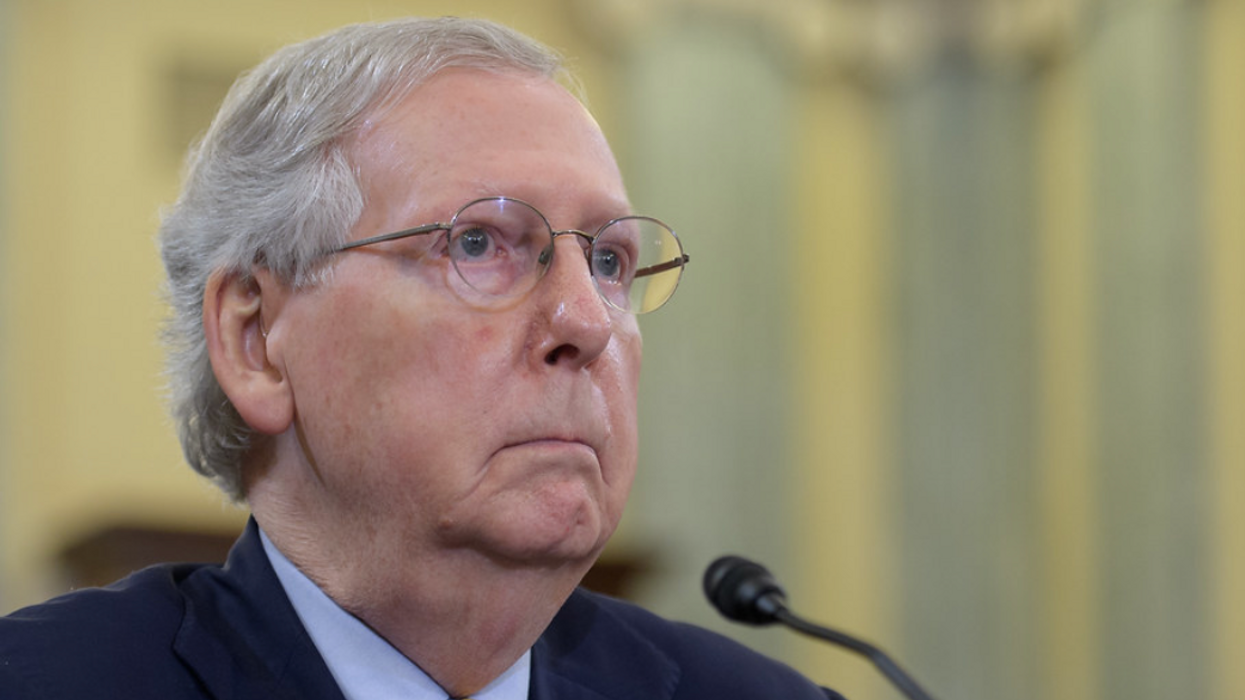Don't Buy Coca-Cola's Plastic Trash Promise
Former New Mexico Gov. Bruce King was renowned for his frequent malapropisms and contorted logic.
For example, he once refused to back a bill pushed by loan-shark lobbyists — but he pledged that it if the legislature passed the thing, he would sign it. Well, the bill did pass ... but Bruce vetoed it! The lobbyists swarmed him, crying that he had given his promise. Yes, the governor conceded, but "we all know that a promise is not a commitment."
Apparently, Coca-Cola executives have been studying Gov. King's verbal backflip, for the multibillion-dollar corporate behemoth suddenly announced this month that it was adopting his "a-promise-is-not-a-commitment" ploy. The beverage barons are using King's dictum to squirm out of the widely ballyhooed promise they made just a few years ago to curtail the corporation's contamination of our planet with plastic waste.
Coke has been the world's No. 1 plastic polluter six years in a row, so its previous pledge to cut its plastic trash in half by 2030 would've had a major impact. But, oops, the honchos now say that was never a commitment — just a "voluntary environmental goal." That goal, they explain, has "evolved," so now they're focused on imposing "efficient resource allocation to deliver lasting positive impact."
You don't need a BS detector to translate that corporate gobbledygook. Coke's "resource allocation" will defund its environmental efforts to further enrich its wealthiest shareholders, delivering a "lasting positive impact" for those few. And for the many who will continue absorbing the deadly petropolymers that Coca-Cola carelessly discharges into our air, water, soil, food and bodies — well, tough luck.
Don't be fooled by voluntary anti-pollution requirements. I promise you, they are hoaxes.
Let's all sing the holiday classic: "All I want for Christmas ... Is Something Not Made of Plastic."
Easier sung than done. Plastic is now ubiquitous in toys, electronics, tools, air, water ... and us. And don't forget the plastic Baby Jesus in Christmas tableaus.
What is plastic, anyway? It's a toxic synthetic material mostly manufactured from petroleum by such giants as ExxonMobil, the globe's top purveyor. So much is produced by these profiteers that plastic trash is now a planetary disaster.
But not to worry, for Big Oil's lobbyists assure us gabillions of plastic bags, bottles and such are being recycled, keeping them out of our landfills, water, bodies, etc. Swell! Except ... they're lying.
After all, Exxon is the same for-profit contaminator that lied for years that fossil fuels were not causing climate change, even though top executives knew they were. Their ethic of deceit continues today — Big Oil knows that 94% of U.S. plastics are not recycled. Indeed, they can't be.
Faced with growing public alarm about the ever-growing glut of plastic pollution, the industry has doubled down on deceit by offering a snappy new PR slogan: "Advanced Recycling." They say it's a magical process dubbed "pyrolysis." Only ... it doesn't work, it's inordinately expensive, and it increases climate change emissions. Still, Exxon exclaims its AR will soon be processing half a million tons of plastic waste! But that's not even a drop in the plastic bucket, for more than 400 million tons of plastic waste is discarded each year — and the oil industry is planning to double plastic production by 2040.
The only real way to stop runaway plastic pollution of us and our planet is to use less plastic. To learn more and help, go to Beyond Plastics: BeyondPlastics.org.
Populist author, public speaker and radio commentator Jim Hightower writes The Hightower Lowdown, a monthly newsletter chronicling the ongoing fights by America’s ordinary people against rule by plutocratic elites. Sign up at HightowerLowdown.org.
Reprinted with permission from Creators.












